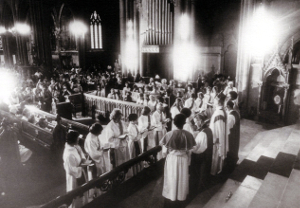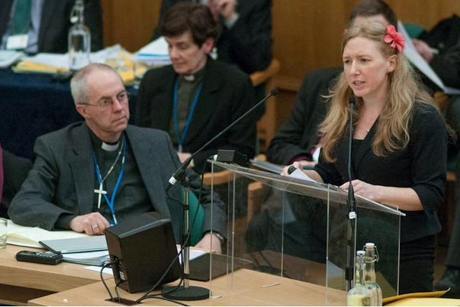
The Director for Gender Justice has a critical role at the Anglican Communion Office.
The Director:
● Has oversight of the global landscape and best practice, which they are able to share across the provinces;
● Helps to connect gender justice champions with others working in similar areas to share strategies, resources, and learning;
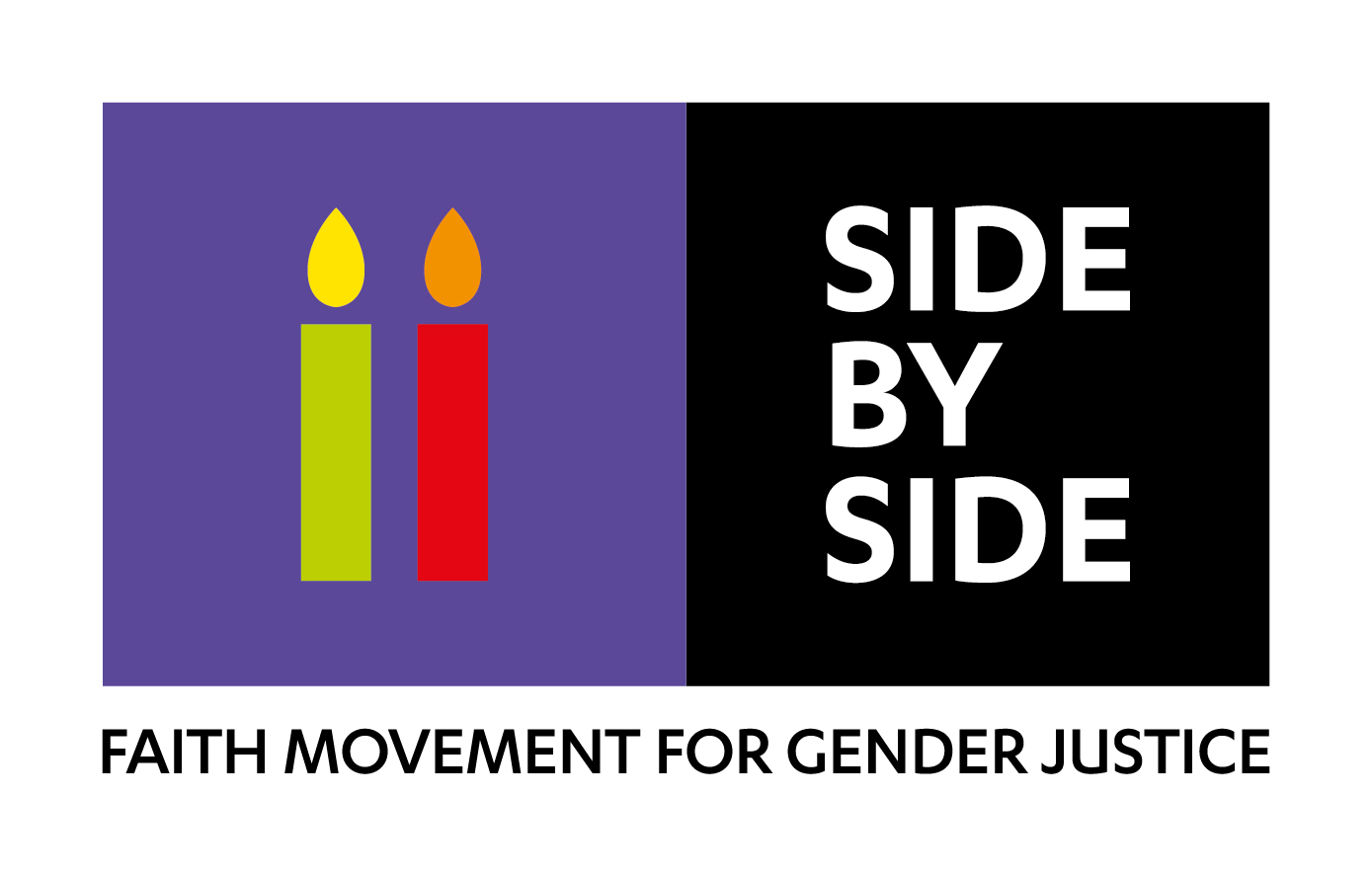
● Provides much needed in-house expertise about how to move towards gender justice;
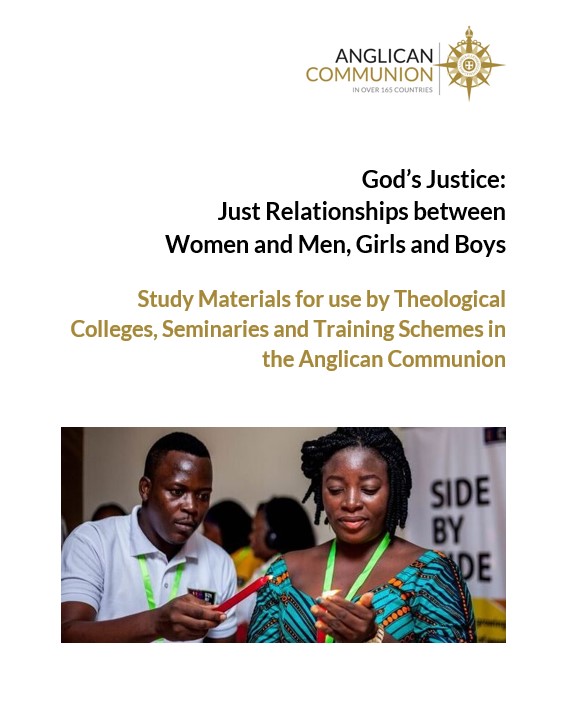
● Informs and advises the Instruments of Communion so that they can keep track of progress in the provinces and measure progress against its gender justice commitments; and
● Enables vital collaboration for joint advocacy with the Anglican Communion’s team at the UN and other departments to help ensure our voices are heard.
The Director conducts this work effectively not only across time-zones but also amongst the linguistic and cultural diversities of the Communion. Without this role, much is at stake for gender justice and the Church’s embodiment of the Gospel.
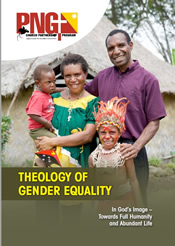
https://www.anglicancommunion.org/mission/gender-justice.aspx
So why is this position at risk? The Anglican Communion Office has undertaken an review of its focus. You can see more :
A letter has been sent urging the Anglican Communion Office
to retain the role of the Director for Gender Justice to demonstrate the Communion’s ongoing commitment to and prioritisation of gender justice and to help equip us to work towards this together.
It was written by Robyn Andréo-Boosey, Manager of the Preventing Violence Against Women Program, Anglican Diocese of Melbourne, Australia
And signed by many leading Anglicans.
If there is anyone you know who wanted to support but was not able to sign the letter on time, please encourage them to contact their bishop/ Archbishop to ask them to raise these concerns and to email the Archbishop, Canon Maggie Swinson and the Steering Committee directly. They can adapt the letter content for this. The more letters / emails the Committee receive about it, the better. The emails for this are:
aco@anglicancommunion.org, secretary.general@aco.org, and stephanie.taylor@anglicancommunion.org.
Please take time to pray for our letter and concerns to be heard and for the Director of Gender Justice role to be maintained.
What can you do?
Read the letter below. Share this information.
Robyn Andréo-Boosey Anglican Centre 209 Flinders lane Melbourne 3000 Australia rboosey@melbourneanglican.org.au Tuesday 26 January 2021
Dear Archbishop Josiah Idowu-Fearon and Canon Maggie Swinson,
We are writing to you with regard to the current review of the Anglican Communion Office carried out by the Standing Committee of the Anglican Communion.
We are deeply concerned about the implications the Standing Committee’s review may have for the role of Director for Gender Justice, a key support to our provinces in addressing gender injustice and creating a world where everyone can thrive.
While we know that one of the objectives of the review is to give more agency to provinces, it remains critical to have a central role that coordinates and supports this work.
Addressing gender injustice is an integral part of the Church embodying the Gospel message. Indeed, the Anglican Consultative Council (ACC) affirms that ‘gender justice and equality are an inherent part of intentional discipleship embedded in the Gospel of Jesus Christ and rooted in Christian values of human dignity, justice, and love’.1
Unfortunately, our churches and communities worldwide are falling short of this Gospel imperative, a fact acknowledged by the Communion itself. In our attitudes, norms, practices, structures and relationships, we have not loved our neighbours as ourselves and treated others as equal, fellow image-bearers of God. Unequal power relations between women and men remain, and they have deeply harmful consequences. Women and girls are systematically disadvantaged and oppressed across the world, some facing multiple levels of discrimination; the vast majority either experience violence or live in fear of it.
As women from across the Communion living in a world that does not recognise our equal value and human dignity, we affirm that, in our daily experiences of Church and community, we are all too familiar with these realities.
The Anglican Communion recognises this gap and has made a strong commitment to gender justice. The Communion affirms the need for change so that ‘our churches truly become a living witness to our belief that women and men are equally made in the image of God’.2 The Anglican Consultative Council has formally acknowledged that the Anglican Communion must strive for gender justice through key resolutions. Notably, the ACC: 1
Anglican Consultative Council Resolution 17:2. 2 Anglican Communion. No date. Gender Justice. https://www.anglicancommunion.org/mission/genderjustice.aspx; Anglican Consultative Council Resolution 15:7.
● Requested all member churches to work towards equal representation of women in decision making at all levels in their own structures of governance and in other bodies to which they nominate or appoint and that each Province to consider establishing a women’s desk (Resolution 13:31).
● Unequivocally supported the elimination of all forms of violence against women and girls and encouraged all Provinces to participate in programmes and events that promote the rights and welfare of women, recognised the importance of appropriate allocation of financial resources
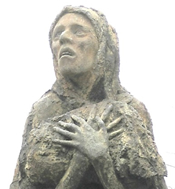
to do so, and recommended the implementation of the principles of gender budgeting throughout the Communion (Resolution 14:33).
● Expressed its continuing commitment to the realisation of Millennium Development Goal 3 to ‘promote gender equality and empower women’ and ending gender-based violence and trafficking, and requested all Anglican provinces to encourage churches to provide an environment where boys and girls are equally valued and equally enabled to participate in learning and activities that foster positive and respectful relationships irrespective of gender, ability, and ethnicity and to develop age-appropriate Christian teaching resources to empower girls and boys to overcome gender stereotypes (Resolution 15:7, 10).
● Urged the provinces of the Anglican Communion to continue to work at empowering girls and boys, women and men to live and work in relationships that reflect Christian values of love, dignity, and justice, including by addressing harmful gender norms, practices and unjust power relations, and requested the provinces of the Anglican Communion to nominate a provincial link for the International Anglican Women’s Network and offer financial support where possible (Resolution 16:2, 3).
● Welcomed the strengthening of ministries of women in God’s world to ensure that women are influential and equal participants throughout the Anglican Communion and requested Member Churches to support the International Anglican Women’s Network and to nominate a woman to serve as a provincial link to the Network;
affirmed that gender justice and equality are an inherent part of intentional discipleship embedded in the Gospel of Jesus Christ and rooted in Christian values of human dignity, justice, and love;
and requested that Member Churches promote gender justice theological study materials, foster awareness of the need for mutual respect and treatment of women and men as central to intentional Christian discipleship, involve men and boys as well as women and girls in the study and practice of building mutually just and equitable relationships in families, churches, and other communities, and encourage shared decision-making and leadership (Resolution 17:2, 3).
Additionally, gender justice is a core part of the Anglican Communion’s Fourth Mark of Mission to ‘seek to transform unjust structures of society, to challenge violence of every kind and to pursue peace and reconciliation.’
There have been significant strides forward in the Church’s engagement on gender justice. We celebrate these changes. However, a deep shift is required and momentum is only beginning to build. Changes made and positive initiatives remain ad hoc and fragile.
Even initial commitments have yet to be met. For example, provinces have not yet implemented the relevant ACC resolutions, including appointing a provincial link to the International Anglican Women’s Network or establishing a women’s desk.
To catalyse the change we long for in the churches and communities in our provinces, we need to be able to connect with, learn from, support and encourage each other, and to share resources and advocate together.
The Director for Gender Justice has a critical role to play in enabling us to do this. Key advantages include the fact that the Director:
● Has oversight of the global landscape and best practice, which they are able to share across the provinces;
● Helps to connect gender justice champions with others working in similar areas to share strategies, resources, and learning;
● Provides much needed in-house expertise about how to move towards gender justice;
● Informs and advises the Instruments of Communion so that they can keep track of progress in the provinces and measure progress against its gender justice commitments; and
● Enables vital collaboration for joint advocacy with the Anglican Communion’s team at the UN and other departments to help ensure our voices are heard.
The Director conducts this work effectively not only across time-zones but also amongst the linguistic and cultural diversities of the Communion. Without this role, much is at stake for gender justice and the Church’s embodiment of the Gospel.
We therefore urge you to retain the role of the Director for Gender Justice to demonstrate the Communion’s ongoing commitment to and prioritisation of gender justice and to help equip us to work towards this together.
Yours faithfully, Robyn Andréo-Boosey, Manager of the Preventing Violence Against Women Program, Anglican Diocese of Melbourne, Australia
Shinoda Akane, Member of Gender project at Japan province, Osaka Diocese, Japan province
Bridie Anne Boyd, Children and Youth Ministry Co-ordinator, Diocese of Christchurch, Province of Aotearoa, New Zealand and Polynesia Revd.
Bianca Daébs Seixas Almeida, Coordenadora do Projeto de Comunicação das Mulheres Anglicanas – Empodere Sua Irmã, Diocese of Recife, Province of Brasil
Martine Dushime, Anglican Church of Burundi, Youth Leader
Ley-Anne Forsyth, Youth Officer and IAWN Link officer for Scottish Episcopal Church, Moray, Ross and Caithness, Province of Scotland
Anna Tomie Kaneko, Secretary of Administration for the Provincial office of NSKK,
Kita-Kanto Diocese, Nippon Sei Ko Kai, Japan Revd. Johanna Nontlantla Mashiyane, Mpumalanga Diocesan Youth Chaplain, Province of Southern Africa
Grace Ofori-Abebrese, Diocesan President and National Vice President, the Guild of St Mary, Diocese of Kumasi-Ghana
Revd. Cecilia Sayoko Ooka, Women’s Desk of the Province of Japan, Diocese of Kyoto
Ruihana Paenga, National Youth Advisor, Te Pihopatanga o Aotearoa, Anglican Church in Aotearoa New Zealand and Polynesia
Amal Sarah, Youth Worker and Social Activist, Women Development and Service Society, Diocese of Raiwind, Church of Pakistan
Deacon Cecilia Chikako Simojo, Gender Project member of NSKK, Diocese Tokyo, Nippon Sei Ko Kai Revd.
Navina Thompson, representing the Province of Jerusalem and the Middle East Clara
Kaoru Yoshitani, Women’s Desk of the Province of Japan, Diocese of Hokkaido



